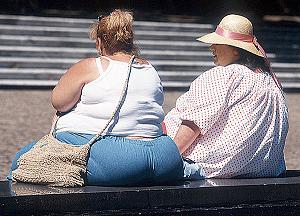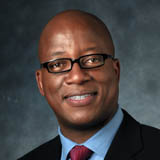
JACKSON – (AP) State leaders are counseling patience as they strive to reduce the share of obese Mississippians.
Rankings released this week by the federal Centers for Disease Control and Prevention show nearly 35 percent of Mississippi adults were very fat in 2011, the worst in the nation.
Mississippi has held that spot for the last six years.
Programs to make people eat healthier and exercise more are spreading. For example, the DeSoto County seat of Hernando is getting national attention for its work to encourage healthy living. Meanwhile, the state’s push to slim down schoolchildren has shown promising signs.
Health leaders hope for an eventual turnaround on obesity, which contributes to health problems including diabetes, heart disease, stroke and high blood pressure.
“We have to continue the work that we’re doing and we have a lot more work to be done,” said Sandra Shelson, executive director of the Partnership for a Healthy Mississippi. “We didn’t become this morbidly obese overnight and we’re not going to turn it around overnight.”
According to the figures, 34.9 percent of Mississippi adults are obese. Someone who is 5 feet 9 inches must weigh 203 pounds to meet the definition of obese.
The 2011 numbers are a little higher than the 2010 numbers, but the CDC changed how it conducted the survey. That means it’s not possible to tell if Mississippi’s collective waistline widened again last year. The share of obese residents has more than doubled since 1991, when it crossed the 15 percent threshold.
Victor Sutton, director of the state Health Department’s Office of Preventive Health said the state is working on an array of programs, including promoting access to fresh fruit and vegetables and creating safe places to exercise. For example, the state instructed vendors to put healthier choices into snack machines in state office buildings.
“We’ve got to change some of the culture to make the healthy choice the easy choice,” Sutton said. “We’re trying to get obesity to level off before we can start to get the rates to go down.”
Hernando has been repeatedly recognized for good work. Dewayne Williams was hired six years ago as Hernando’s parks and recreation director. Hernando doesn’t have the elaborate facilities operated by some other cities in the Memphis suburbs of DeSoto County, but Williams and his six employees have worked to create options.
The city signed a joint agreement with DeSoto County Schools to offer after-school and weekend hours in school gyms. It created a community garden and sponsors what it says is Mississippi’s largest farmers market. City planners require sidewalks, so residents can walk to parks.
“The mindset we have is to try to offer options to people to help them combat obesity,” Williams said. “We’re just trying to be creative from the inside out.”
Hernando was named the “Healthiest Hometown in Mississippi” by the Blue Cross & Blue Shield of Mississippi Foundation, winning a $50,000 grant. Williams has been invited to speak to the National Recreation Parks Association at a California meeting in December.
Williams said he’d like to study whether city efforts are paying off.
“That’s the next step, to try to get quantifiable evidence,” he said.
Obesity-related health expenses are projected to cost Americans more than $550 billion this year according to the Trust for America’s Health. That group urges stronger government action to curb fat, projecting the country could save more than $150 billion over the next 20 years if obesity rates would only rise more slowly.
“This is not about being a runway model,” Shelson said. “It’s about improving your own health.”




Be the first to comment